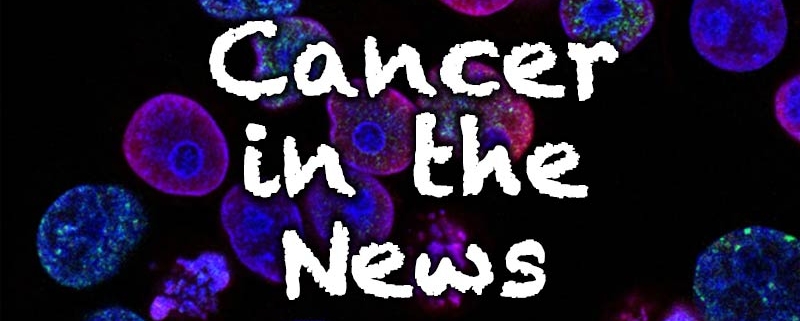New Treatments, Reducing Side Effects, Cancer & Covid, Medical Cannabis
20th Issue: Contents
New Treatments
Oral Combo Shows Activity in HER2-Positive Breast Cancer With Brain Metastases
The Breast Cancer With No Target May Have One: NOS
Engineering Bacteria to Improve Cancer Immunotherapy
Oncolytic Virus Clinical Trial Opens for Patients With Advanced Breast Cancer
Reducing Side Effects
Combination Therapy of Physical Activity and Dexamethasone for Cancer-Related Fatigue: A Phase II Randomized Double-Blind Controlled Trial
Could Probiotics Reduce ‘Chemo Brain’ in Breast Cancer Patients?
Cancer & Covid
Cancer treatment may inhibit immune response to COVID-19 vaccination
COVID-19 and Cancer Vaccines
Most Cancer Patients With Breakthrough COVID-19 Infection Experience Severe Outcomes
COVID-19 May Promote Tumor Development in Patients With Cancer
Medical Cannabis
CBG (Cannabigerol): The Cannabis Stem Cell
New Treatments
• Oral Combo Shows Activity in HER2-Positive Breast Cancer With Brain Metastases
“Pyrotinib plus capecitabine showed encouraging antitumor activity in patients with HER2-positive metastatic breast cancer and brain metastases”
My two cents: Up to 50% of patients with HER2+ metastatic beast cancer will develop brain metastasis during the course of the disease, often leading to worse morbidity and shorter survival. The incidence is similar for triple negative, 15% for HR+, HER2-. So, you can guess that HER2+ patients are apprehensive and constantly looking for treatments beyond surgery and radiotherapy. Luckily, there have been a few treatment breakthroughs in recent years. This latest, Pyrotinib plus capecitabine, seems to be more effective than lapatanib and capecitabine with similar side effects. Of course, the side effects could be due strictly to the capecitabine. My own experience is that I couldn’t tolerate either lapatanib’s nor capecitabine’s toxic side effects.
• The Breast Cancer With No Target May Have One: NOS
“Triple-negative breast cancer (TNBC) — characterized by the lack of expression of estrogen receptor, progesterone receptor, and human epidermal growth factor receptor 2 (HER2) — remains a challenge to treat because it has no clear biological target.
In the hunt for a target, a team of American researchers may have found a druggable spot: the inducible nitric oxide signaling (NOS) pathway. In a phase 2 trial, patients with chemo-resistant, locally advanced and metastatic TNBC, the use of a first-in-class pan-NOS inhibitor known as L-NMMA alongside docetaxel yielded an overall response rate of 45.8%.”
My two cents: Rare good news for our TNBC sisters and brethren
• Engineering Bacteria to Improve Cancer Immunotherapy
“Can bacteria be engineered in ways that they help our bodies better fight cancer?”
My two cents: Love this in theory. I’m a little trepidatious that we might make things worse by messing with other nature, as we so often do.
• Oncolytic Virus Clinical Trial Opens for Patients With Advanced Breast Cancer
“…a phase 1 clinical trial for an investigational therapy in patients with metastatic triple-negative breast cancer. The trial is a first-in-human analysis of using an oncolytic virus, which is a cancer-killing virus, to treat patients.”
My two cents: It’s about time a virus started saving our lives instead of ending them, doncha think?
Reducing Side Effects
“Cancer-related fatigue (CRF) in patients with advanced cancer is more frequent and severe than in those with early cancer or in cancer survivors. In patients with advanced cancer, a barrier to Physical Activity is adherence to exercise programs. Results of this preliminary phase II randomized, double-blind, controlled study suggested that the combined therapy (of Dexamethosone and physical activity was feasible and resulted in a significant reduction in Cancer-Related Fatigue. Patients were adherent to the combined therapy and had no significant adverse events. We observed a sustained improvement in CRF and fatigue-related outcomes for up to 3 weeks after discontinuation of Dex, suggesting that the possible priming effects of Dex helped sustain Physical Activity.”
My two cents: Hmm… pump you with steroids to get you to do your exercise routine. Have mixed feelings on this one. I’m a huge believer in the power of exercise, even if its just doing arm and leg lifts from your chemo chair… it helps get your blood and your lymph moving and helps with detox, fatigue, and immune response. And I understand the greater reluctance of advanced cancer patients to muster the energy to sustain a regular exercise routine. And I like how steroids can make you feel like Superman /woman.
But there is a price to pay. It isn’t good to be on steroids for very long and its very important that you wean off slowly. I say dig deep and do what you are capable of doing… a little bit every day. You don’t need no stinking steroids! But if you ARE on steroids for other cancer-related reasons, take advantage of the extra energy to push yourself to do a little more… you know, at midnight, when everyone else is asleep but steroids won’t let you sleep. LOL
• Could Probiotics Reduce ‘Chemo Brain’ in Breast Cancer Patients?
“Patients with breast cancer treated with chemotherapy who also took a probiotics supplement had significantly fewer symptoms of chemotherapy-related cognitive impairment (CRCI) ― often referred to as “chemo brain” ― compared to a control group taking placebo capsules”
My two cents: This makes sense. We are learning more very day about the importance of our microbiome on our health. 92% of the DNA in our bodies is microbial. Better they be good bugs than not. Another reason to avoid unnecessary antibiotics.
Cancer & Covid
• Cancer treatment may inhibit immune response to COVID-19 vaccination
”… patients with cancer who receive chemotherapy ― and some targeted therapies, such as CDK4/6 inhibitors and therapies targeted at B cells ― may mount an inadequate immune response to COVID-19 vaccination.”
My two cents: CDK4/6 inhibitors are a newer class of medicines used to treat hormone-receptor-positive and HER2-negative breast cancers and include abemaciclib (Verzenio), palbociclib (Ibrance) and ribociclib (Kisqali). Talk to your oncologist to see if any of the treatments you are on fit this warning.
• COVID-19 and Cancer Vaccines
“We chose mRNA as the platform for our cancer vaccines because it’s a natural molecule that’s very easy and fast to manufacture.”
My two cents: I don’t have an opinion but this is an interesting read… an interview with the four leading scientists on using mRNA vaccine technology to create a cancer vaccine.
• Most Cancer Patients With Breakthrough COVID-19 Infection Experience Severe Outcomes
“Patients with cancer remain vulnerable to breakthrough COVID-19 infection after vaccination and most experience severe outcomes.”
My two cents: I wish the universe would stop picking on cancer patients, don’t you?
• COVID-19 May Promote Tumor Development in Patients With Cancer
“Cancer patients exposed to SARS-CoV-2 infection experience persistent increases in cytokines, chemokines and (angiogenic) growth factors (CCGs) over and above those seen in unexposed patients.”
My two cents: Again, Universe, Seriously?
Medical Cannabis
• CBG (Cannabigerol): The Cannabis Stem Cell
“CBG is short for cannabigerol. It’s often referred to as the “stem cell” of cannabinoids because it serves as the precursor molecule for most naturally occurring cannabinoids, including CBD (cannabidiol), delta 9 THC (tetrahydrocannabinol), and CBC (cannabichromene). Researchers suggested that the primary anti-cancer benefit of CBG was a result of its ability to inhibit a receptor in our cells known as TRPM8 (Transient receptor potential cation channel subfamily M). TRPM8 is important because it’s involved in the growth, proliferation, and survival of certain cancer cell lines [4]. Blocking this channel is one of the key areas of research for developing new anticancer medications.”
My two cents: This doesn’t count as definitive proof of the anti-cancer properties of cannabis but illustrates the mechanisms of how it could be working. My protocol book, What I Did and Do and Why, has over 300 references to research on Cannabis and Cancer alone.
Cancer in the News has a posting frequency of once every one to two months.


